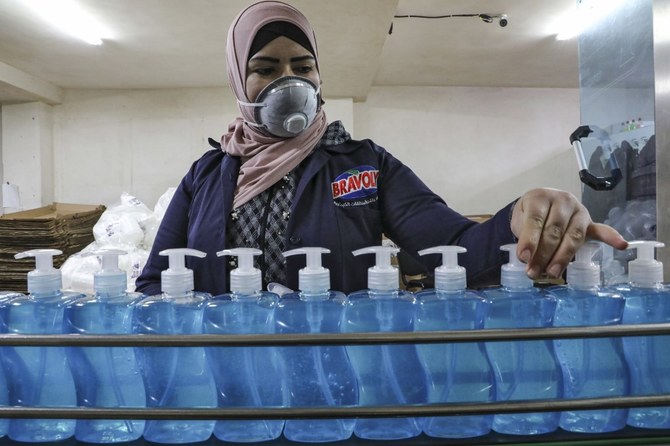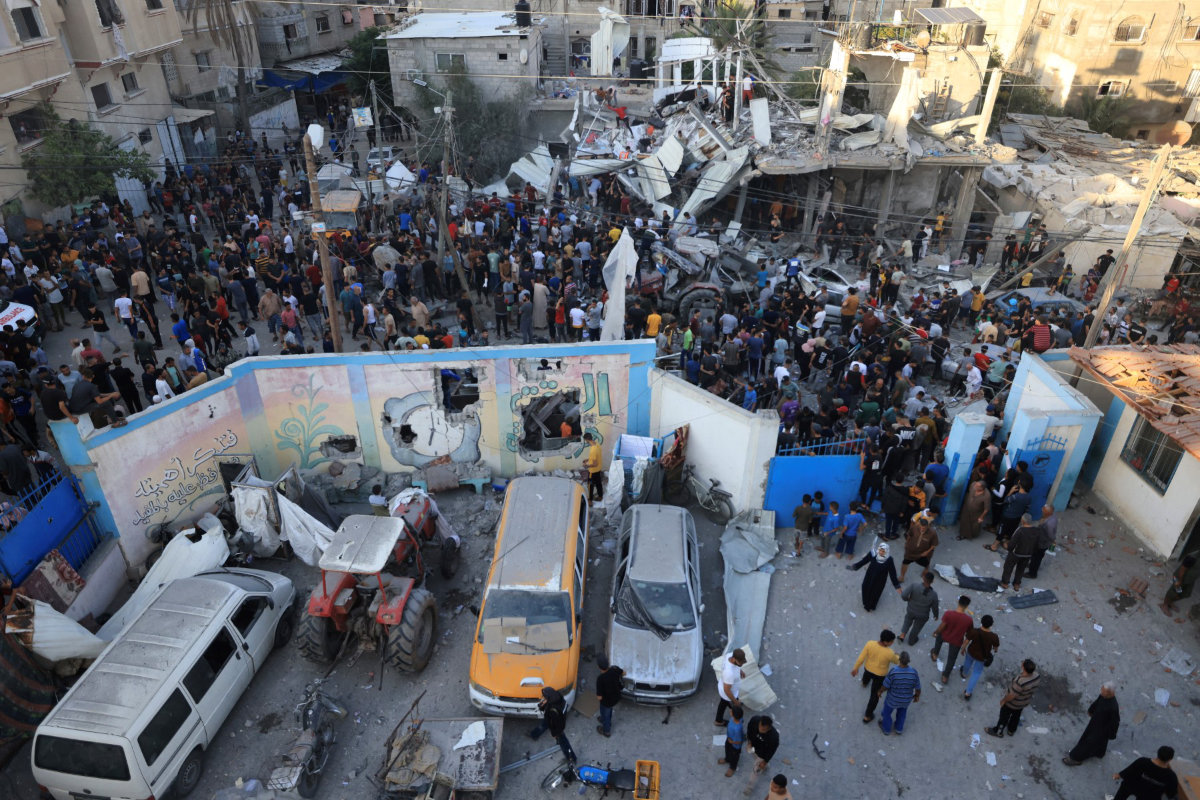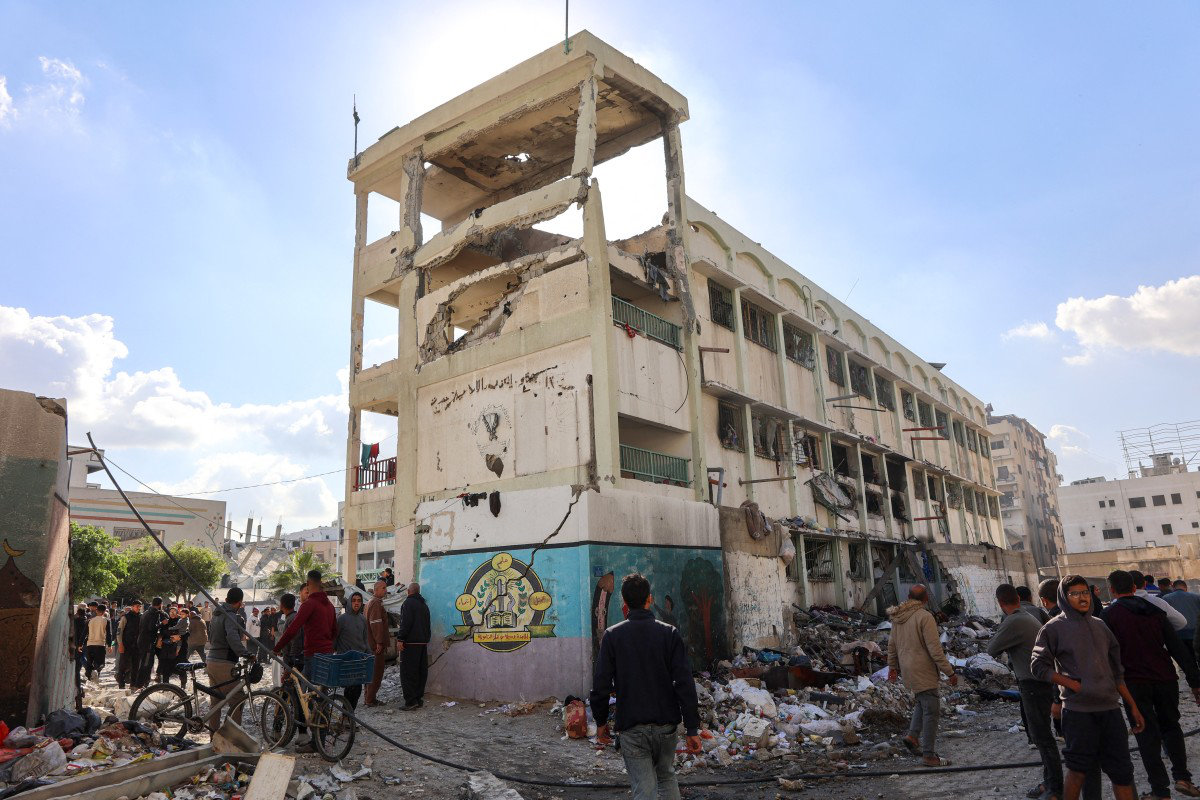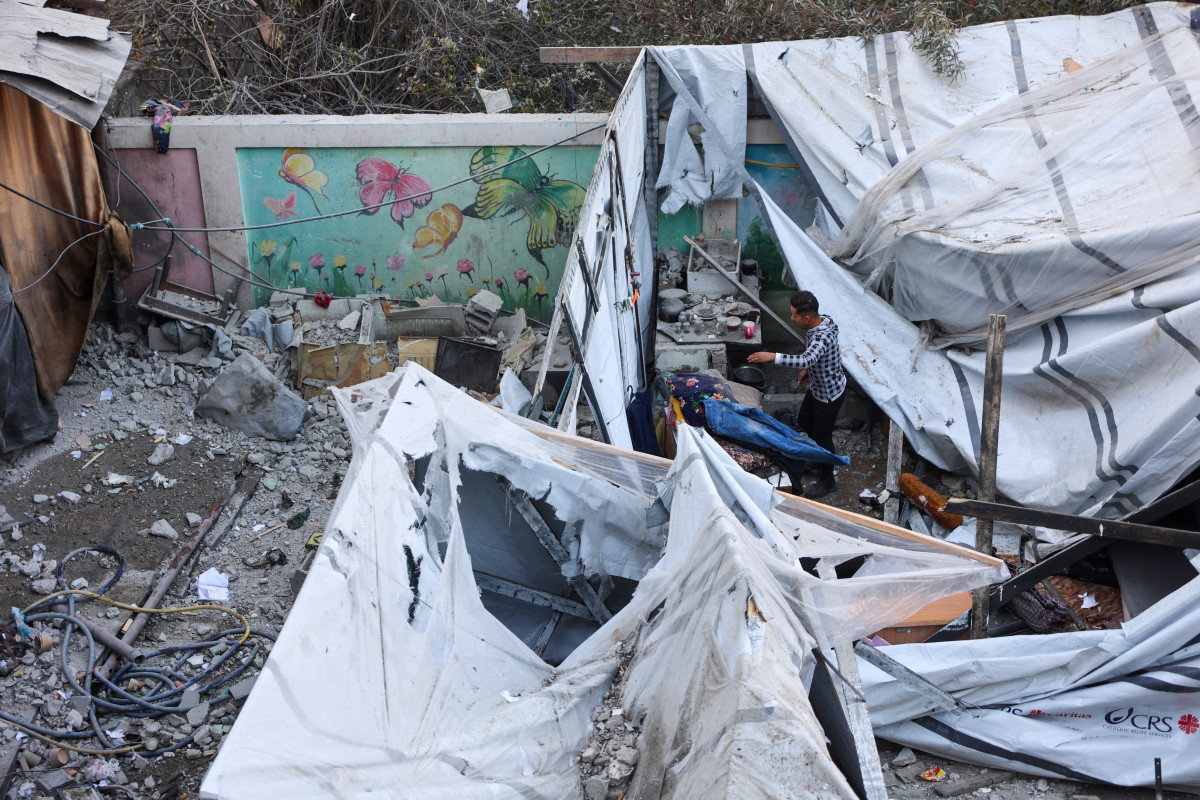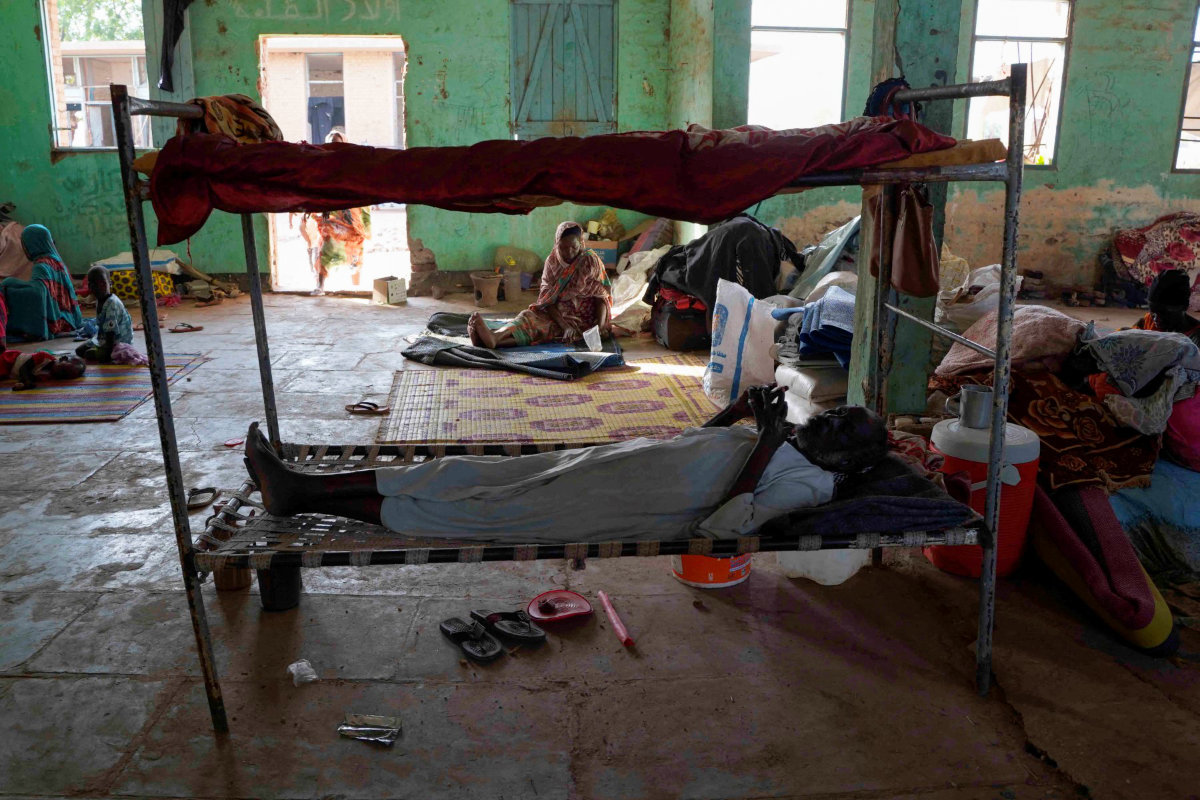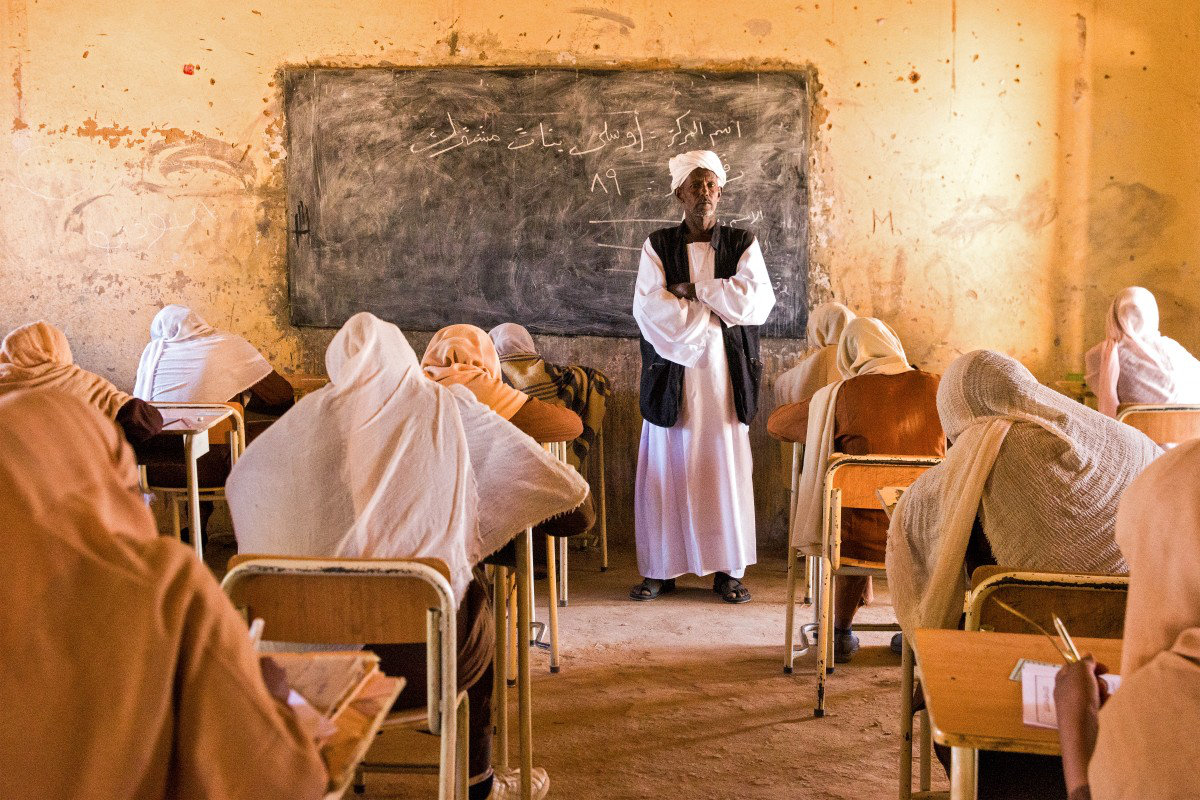DUBAI: Some governments in the Middle East suspended work in some sectors and are asking employees to work from home.
In a bid to limit the spread of coronavirus, even major visitor destinations like Abu Dhabi and Dubai have closed down popular tourism sites and cancelled a number of public events.
Monday, March 16 (All times in GMT)
20:40 - Tunisia bans all gatherings, closes public parks and markets to tackle the spread of coronavirus, said Prime Minister Elyes Fakhfakh.
20:30 - There will be a "dramatic" change in the spread of coronavirus if Americans follow guidelines issued by the White House on Monday to fight virus, a member of the White House coronavirus task force said.
"If everybody in America does what we ask for over the next 15 days, we will see a dramatic difference," Deborah Birx, White House coronavirus response coordinator, said at a White House briefing also addressed by President Donald Trump.
The recommendations included avoiding social gatherings of more than 10 people. Birx said one of the most important steps was that if one person in a household became infected, the whole household should self-quarantine for 14 days.
Trump also called on Americans to "band together" and not hoard essential items.
I ask all Americans to band together and support your neighbors by not hoarding unnecessary amounts of food and essentials. TOGETHER we will stay STRONG and overcome this challenge!
— Donald J. Trump (@realDonaldTrump) March 16, 2020
20:15 - Egypt reported on Monday two more deaths because of coronavirus, bringing the total of coronavirus related deaths in the country to four, the health ministry said in a statement.
The individuals were a 72-year-old German who died in Luxor and a 50-year-old Egyptian in Dakahlia governorate, the statement added.
20:06: - US Defense Secretary Mark Esper has started keeping himself and his staff physically separated from his deputy’s team as one of the precautions to prevent the spread of the coronavirus from impacting the Pentagon’s operations.
“We are attempting to put ... a bubble around the two of them,” Pentagon spokesman Jonathan Hoffman told a news briefing, adding Esper’s visitors were being limited and screened.
18:30 - Iran on Monday closed four key Shiite pilgrimage sites to stop a coronavirus outbreak that has killed over 850 people out of nearly 15,000 cases recorded in the Islamic republic.
The holy shrines of Imam Reza in Mashhad, Fatima Masumeh in Qom and Shah Abdol-Azim in Tehran were shut until further notice "upon the orders of the anti-coronavirus headquarters and the health minister," state television said.
18:25 - India will close the iconic Taj Mahal to visitors from Tuesday as part of measures to try and combat the coronavirus pandemic, the tourism ministry said on Monday.
"All ticketed monuments and all other museums have been directed to be closed until March 31," Tourism Minister Prahlad Patel tweeted late Monday.
17:50 - Canada closed its borders to all foreign nationals, except U.S. citizens, on Monday, and Prime Minister Justin Trudeau urged people to stay at home to help stem the spread of the new coronavirus.
"We will be denying entry into Canada to people who are not Canadian citizens or permanent residents," Trudeau told reporters at a news conference outside his home, where he is under quarantine.
17:10 – The death toll from an outbreak of coronavirus in Italy has risen in the last 24 hours by 349 to 2,158, an increase of 19.3 per cent, the Civil Protection Agency said on Monday.
The total number of cases in Italy, the European country hardest hit by the virus, rose to 27,980 from a previous 24,747, up 13 per cent, the slowest rate of increase since the contagion first came to light on Feb. 21.
17:00 - British people need to stop non-essential contact and avoid clubs, pubs, theatres and all unnecessary travel as the coronavirus outbreak accelerates towards the fast growth phase, Prime Minister Boris Johnson said on Monday.
"Now is the time for everyone to stop non essential contact with others and to stop all unnecessary travel," Johnson said at a news conference in Downing Street.
#LIVE: #UK PM Johnson says "#London is a few weeks ahead" of rest of UK, urges more social distancing in the capital - says by this weekend, will be necessary those with most serious conditions in UK shielded from social contact for 12 weeks #coronavirus https://t.co/WOkk5jFUPz pic.twitter.com/sDbeZUU60y
— Arab News (@arabnews) March 16, 2020
"We need people to start working from home where they possibly can," he said. "And you should avoid pubs, clubs, theatres and other such social venues."
"It looks as though we are now approaching the fast growth part of the upward curve and without drastic action cases could double every 5 or 6 days," Johnson said.
16:10 – The World Health Organization called on all countries to ramp up their testing programmes as the best way to slow the advance of the coronavirus pandemic. Director-General Tedros Adhanom Ghebreyesus said even countries with good health capacity have struggled to cope and "deeply concerned" about spread to low income countries.
“There’s no doubt that we are missing cases," Dr. Maria Van Kerkhove, WHO infectious disease epidemiologist, said during a press briefing.
"The reason why we are so aggressive in our statement of finding all cases and testing cases is because we need to know where this virus is," Van Kerkhove added. "It’s important that we don’t give up. … We need to be finding all of these cases so that we can effectively isolate them and reduce the risk of onward transmission."
15:20 – The German government on Monday banned gatherings in churches, mosques and synagogues and ordered non-essential shops as well as playgrounds shut, as it battled to slow the spread of the coronavirus pandemic.
Supermarkets, banks and post offices will stay open, but the sweeping restrictions aimed at “limiting social contact in public places” will leave most sites from museums to swimming pools to gyms shuttered.
15:05 – Qatar has announced 38 new cases in the country.
14:50 – Europe is looking to ban foreign nationals from coming into the Schengen open border zone, two sources said, as the continent scrambles to contain the spread of coronavirus.
The Schengen zone consists of 22 of the 27 European Union member states, as well as Iceland, Norway, Switzerland and Lichtenstein. Britain and Ireland are not part of it.
14:45 – Bahrain’s flag carrier Gulf Air said it will temporarily reduce its network and suspend flights to several destinations.
No more information was immediately available about the list of countries that would be affected.
Gulf Air Temporarily Reduces its Network and Suspends Flights to Several Destinations
.
طيران الخليج تقلص من وجهات شبكتها وتعلّق رحلاتها مؤقتًا لعدد من محطاتها
.https://t.co/en9Qtkzsgt
.#GulfAir#طيران_الخليج pic.twitter.com/Qz8GW94ElN— Gulf Air (@GulfAir) March 16, 2020
14:30 – The number of cases in Jordan has risen to 18.
14:15 – Malaysia will shut its borders to travelers, restrict internal movement, close schools and universities and order most businesses to shut after its number of coronavirus cases climbed on Monday to the highest in Southeast Asia.
13:50 – A video on social media shows a reporte collapsing live on Lebanese news TV while covering the border shutdown due to the virus. Watch below...
#WATCH: Lebanese reporter collapses live on television as she covers border shutdown over #Coronavirus #Lebanon #CoronavirusLebanonhttps://t.co/mvGYyt9Klk pic.twitter.com/NDpfxHh2ra
— Arab News (@arabnews) March 16, 2020
13: 20 – Egypt will halt all air traffic from its airports starting Thursday until March 31 to prevent the spread of coronavirus, Prime Minister Mostafa Madbouly said on Monday.
12:43 – Turkey has suspended mass prayers in mosques due to coronavirus fears, the country’s religious affairs head said.
12:33 – Jordan has announced that it will impose mandatory quarantine on arrivals for 14 days.
11:33 – Friday prayers were suspended in Oman as a precaution against coronavirus, according to the Sultanate’s Ministry of Religious Affairs.
11:10 – Spain has registered nearly 1,000 new COVID-19 infections over the past 24 hours, raising the total number of cases to 8,744, the health ministry said.
11:04 – Kuwait’s health ministry quarantines residents of a whole building after confirming some of them have been in contact with a coronavirus patient.
10:51 – Iran said on Monday that the novel coronavirus has killed 129 more people, a new record high for a single day in one of the world’s worst-hit countries.
“Our plea is that everyone take this virus seriously and in no way attempt to travel to any province,” health ministry spokesman Kianoush Jahanpour said in a televised news conference.
The latest deaths bring the overall toll to 853 fatalities since February 19, when the government announced Iran’s first two deaths from the disease.
10:44 – Qatar temporarily closes restaurants, cafes and gatherings in halls, except delivery services.
10:43 – Morocco will close eateries, cinemas, theatres, sports, public clubs, baths, and other entertainment venues starting from today over coronavirus fears, the Interior Ministry said.
Markets, and shops selling necessary goods as well as restaurants offering a delivery service are exempt, the ministry said in a statement. Morocco, which confirmed 29 coronavirus cases, including one death and one recovery, suspended all international flights, closed schools and banned gatherings of more than 50 people.
10:43 – Kuwait’s central bank cut its discount rate by 100 basis points to 1.5 percent from 2.5 percent, part of a series of precautionary measures “for the consequences of the outbreak of the coronavirus.”
— بنك الكويت المركزي | CBK (@CentralBank_KW) March 16, 2020
09:56 – The number of coronavirus cases in Jordan has increased to 16, authorities said.
09:46 – Georgia closed its borders to foreign nationals due to coronavirus concerns.
09:37 – Malaysia reported 125 new coronavirus cases on Monday, with most linked to a religious gathering attended by around 16,000 people. The new cases bring the total tally to 553 in the country, which remains the worst affected in Southeast Asia.
09:37 – A health official in Thailand said that 33 new coronavirus cases have been recorded, bringing the tally to 147.
08:20 – Dubai tourism authorities have ordered the closure of bars, pubs and lounges, including bars within restaurants until the end of the month.
08:14 – Bahrain recorded its first coronavirus death, a 65-year old female patient who returned from Iran last month.
08:01– The Dubai stock exchange closed its trading floor as precautionary measure against coronavirus, a day after the Abu Dhabi bourse issued a similar notice.
يرجى من الجميع التكرم بتقديم الطلبات وتتبعها الكترونياً عبر الخدمات الإلكترونية، من خلال تحميل تطبيق الخدمات الذكية لسوق دبي المالي و الموقع الالكتروني https://t.co/daawIuHUZf
لا تأثير للإغلاق المؤقت لقاعة التداول على استمرارية أنشطة التداول في السوق. pic.twitter.com/KTvMWzU5Ds
— DubaiFinancialMarket (@DFMalerts) March 16, 2020
07:57 – Kuwait’s Ministry of Health confirmed 11 new cases of COVID-19 which were detected in the past 24 hours.
Meanwhile 564 people were released from quarantine after testing negative for the coronavirus, the ministry added.
07:41 – Philippine President Rodrigo Duterte will impose “enhanced community quarantine” across the country”s entire main island of Luzon, his spokesman said on Monday, adding to existing measures aimed at containing the spread of coronavirus.
07:11 – US humanitarian group the Peace Corps, said it will temporarily suspend all global operations and evacuate its volunteers, amid the ongoing coronavirus outbreak.
“As COVID-19 continues to spread and international travel becomes more and more challenging by the day, we are acting now to ... prevent a situation where volunteers are unable to leave their host countries,” Peace Corps Director Jody Olsen said in a letter to volunteers posted on its website.
07:05 – The Honduras was in a state of near lockdown on Monday after the government decided to send public and private sector workers home, temporarily call off flights, and suspend public transport to halt the spread of the coronavirus.
The violent, impoverished Central American nation rolled out the measures late on Sunday in a bid to snuff out the virus which has so far infected six people in the country.
The measures will be in effect for seven days, the government said, bolstering a drive by a number of Central American countries to stop coronavirus.
Exceptions to the public sector suspensions include people working in healthcare, emergency services, security and national defense, customs, migration, ports and airports.
In the private sector, banks, hospitals, pharmaceutical firms, gas stations, freight operators and a few other sectors will continue to operate, the government said.
06:58 – The coronavirus outbreak in France is “very worrying” and “deteriorating very fast,” the head of the country’s health service said Monday. “The number of cases double every three days,” Jerome Salomon said on France Inter, adding that the number of seriously ill patients and those needing intensive care “runs into hundreds.”
06:41 – Italy’s government is ready to intervene again if needed as measures approved so far are not enough to support businesses through the coronavirus crisis, Italy’s Prime Minister said on Monday.
“The approved measures are not sufficient. Damage (from the coronavirus) will be serious and widespread. A true ‘reconstruction plan’ will be needed,” Giuseppe Conte told daily Corriere della Sera in an interview.
The government has said planned economic support would total some $27.94 billion and new measures to support businesses and families are expected to be approved at a cabinet meeting later on Monday.
“We are responding with rules that will allow our economy to face the costs of the emergency. We are ready, if necessary, to intervene again to relaunch the country,” the premier added.
06:39 – Oman has suspended treatment services for non-urgent and routine medical cases, whose delay does not directly affect patients’ health, until further notice.
تعلن #وزارة_الصحة ممثلة في #المستشفى_السلطاني انه اعتبارا من تاريخ 16/03/2020 وحتى إشعار اخر سيتم تعليق الخدمات العلاجية المقدمة للحالات الروتينية الغير مستعجلة التي لا يؤثر تأخير المواعيد على صحتها بشكل مباشر مؤقتا وحتى اشعار آخر. pic.twitter.com/UUCxu2Holf
— وزارة الصحة - عُمان (@OmaniMOH) March 16, 2020
06:08 – The leader of Iran’s Assembly of Experts, Hashem Kalbakani of COVID-19, the disease caused by the coronavirus
06:01 – Israel said the number of coronavirus patients has increased to 248 people, with 48 of them were diagnosed during the past 24 hours.
05:01 –Turkey identified 12 new cases of the coronavirus, bringing its total to 18, Health Minister Fahrettin Koca said on Monday, marking the highest daily rise since the country announced its first case last week. Koca said two of the new cases were related to the first case reported in the country, seven had travelled from Europe and three from the United States. Bars and nightclubs will be temporarily closed as of Monday, the country’s Interior Ministry said.
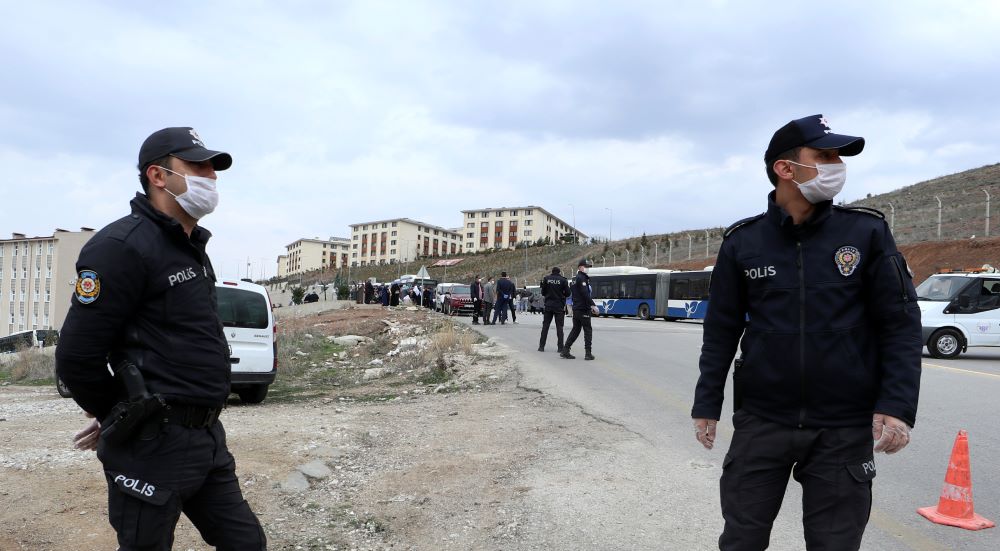
Turkish police officers secure the area as pilgrims arrive from the airport to be quarantined in university dormitories outside Ankara on Sunday, March 15, 2020. (AP)
03:01 – Bars, restaurants and nightclubs in Los Angeles were ordered to close from midnight on Sunday until March 31 as US cities take drastic action to halt the spread of the deadly coronavirus.
“To help prevent the spread of COVID-19, I’m taking executive action to temporarily close bars, nightclubs, restaurants (except takeout/delivery), entertainment venues, and other establishments in the city of Los Angeles,” wrote Mayor Eric Garcetti on his Facebook page.
It follows a similar dramatic shutdown in New York also announced on Sunday.
01:33 – South Korea reported 74 new coronavirus infections on Monday, slightly lower than a day ago, according to the Korea Centers for Disease Control and Prevention.
The new cases bring the country’s total to 8,236.
The KCDC also reported that 303 more patients had fully recovered and had been released from care. A total of 1,137 people have recovered and been released so far.
South Korea has been experiencing a downward trend in new cases and the latest numbers are significantly lower than the peak of 909 cases reported on Feb. 29 and slightly down from the 76 recorded on Sunday.
Sunday, March 15 (All times in GMT)
21:31 – Jordan’s health ministry reported that the coronavirus cases toll has risen to 12, 5 nationals, 6 French and an Iraqi lady.
Another Jordanian man has recovered from coronavirus and was discharged on Friday, the ministry added.
20:42 – Egypt’s Ministry of Health and Population recorded 16 new cases of coronavirus, bringing the total to 126.
The ministry reported only two deaths and 26 recoveries.
19:43 – Iraq’s health ministry reported 14 new cases of coronavirus, bringing the total to 124. There have been 9 deaths and 26 recoveries so far, the ministry added.
19:34 – Oman has banned the entry of all non-Omanis via all land, sea and air ports and checkpoints, except citizens of GCC states. It also imposed quarantine on all passengers arriving in the country via all land, sea and air ports and checkpoints, including Omanis.
The sultanate’ COVID-19 Supreme Committee also decided to close all parks and public play areas and suspended Friday prayers and social gatherings including wedding parties and funeral ceremonies. The decisions take effect from Tuesday, March 17.
18:21 – Bahrain has announced a reduction in the number of incoming flights to the country as well as the suspension of visas on-arrival across all entry points, until further notice, effective 3:00a.m. on Wednesday, March 18.
17:05 – UAE’s ministry of health said of three patients recovered from coronavirus, state news agency WAM reported.
This brings the total toll of recoveries in the country to 26.
15: 43 – Oman’s Ministry of Health reported two new cases of coronavirus, involving a resident and a female citizen who had a history of travel to Italy.


